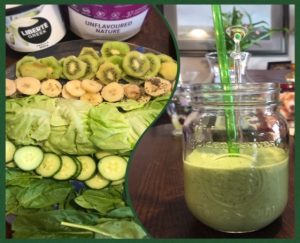
Summer temperatures have finally arrived, and the training volume is climbing – This means a lot more time on long rides and runs in the heat. Theses strenuous and sweaty workouts are essential preparation for our races … but they can leave our bodies depleted of essential nutrients if we don’t properly fuel and hydrate. During intense bouts of activity, especially in the heat, we lose very important essential minerals, especially the macrominerals, in our sweat and require replacement. Has athletes it is imperative that we maintain a micronutrient dense diet to keep the optimal levels of each vitamin and mineral in order to function at our healthiest and perform at our best.
Truth is as an Endurance athlete – We require more of these little micronutrient gems than the general population … How much more? Well that’s a hard question to answer – since it’s not well studied. Anyone training for a triathlon or marathon and running for hours in the hot sun— will need to put extra effort into replenishing the minerals flushed out via sweat. We know macrominerals, (the major 3 being sodium, magnesium and potassium), are usually lost in our urine, during defecation and especially through sweating. These tiny but powerful minerals support many important functions within the body, for example proper fluid balance, nerve transmission, muscle contraction, cellular metabolism regulation, bone health, blood clotting, blood pressure regulation and immune system health– just to name a few.
So how do we get a sufficient amount of these essential minerals our body requires since we can not produce and replace them on our own?
Remember refueling after an intense workout not only rebuilds and repairs our muscles by providing us with our macronutrients such as carbs for glycogen replenishment and protein for repair. But this refueling also hydrates us by replacing our essential minerals such as our electrolytes along with water.
As always … relying on a balanced and nutritious diet is always the first and most important starting point. These essential minerals come from rocks, soil, and water, and they’re absorbed as the plants grow or by animals as the animals eat the plants. What better way to get and replace some of them than with a wholefood Smoothie? There are many nature approved electrolyte restorers that we can consume without any artificial “extras” added … Green leafy vegetables such as spinach and one fruit in particular – the cucumber – (that’s right, cucumbers are not a vegetable) are rated as excellent and good replenishers of potassium and magnesium respectively . This is where the idea for the “Cool as a Spinach Cucumber” Smoothie fell into place.
Have you ever thought of using spinach and cucumbers in your smoothies?
Cucumber — A nutrient dense fruit – Meaning they have very few macronutrients (carbohydrates, fat and protein) but are high in nutrients. They are an excellent source of vitamin K and a good source of magnesium and potassium. Cucumbers have a high-water content aiding in our hydration and rehydration game. Cucumbers are also rich in phytonutrients which help us lower our risk of oxidative stress and chronic inflammation.
Spinach – Belongs to the amaranth family and is actually related to beets (think nitric oxide) and quinoa. When trying out green smoothies probably the first green leaf I would try is spinach. Its an absolute super food and I could write pages on its health benefits … ? … but it also has a neutral taste and ability to blend up without leaving little chunks in your drink, (unlike kale – which is also amazing but probably a slightly bitter for most people just starting to add a green smoothie to their dietary arsenal). Its an excellent source of vitamin K, magnesium, potassium and so much more that it’s almost a shame not to toss a handful into every smoothie you make.
Essential minerals are most beneficial when they come from food and there are many different types of green vegetables/fruits available to provide us with exceptional nourishment that is nothing short of astonishing! But … if you’re struggling with deficiencies even thou your diet is well balanced, have certain health conditions such as kidney stones or are on medications such as blood thinners — you may need to take supplements and/or adjust foods high in oxalates and vitamin K accordingly. So, if you fall into these categories please talk to your family health care provider (Physician, Pharmacist, Nutritionist etc.) The bottom line here: Your individual health will determine your essential mineral needs. Work with your health care provider to develop targets for dietary minerals that will enrich your health and overall performance in your desired sport.
Cool as a Spinach Cucumber Smoothie
Ingredients: for 1 serving
*1 kiwi peeled or 1 cup strawberries
*1/2 cup spinach
*1 Frozen banana
*1/8 avocado (helps with our absorption of Vit A, D, E and K)
*1/2 Tbsp chia seeds (optional – omega and healthy fats)
*3/4 cup vanilla Greek yoghurt
*1/4 serving of plain or vanilla protein powder
*2-3 large Bibb lettuce leaves
*1/2 English cucumber sliced
*optional ¼ cup coconut water
*pinch of Himalayan salt
Preparation prep time: 5-10 mins
Throw all ingredients into a blender and blitz for 30-60 seconds until creamy (It may seem like you have to add extra fluid at first but keep pulsing the blender – the water rich celery and kiwi or strawberries will do the trick within seconds)
298 calories, 29 g protein, 34 g carbs, 6 g fat
Don’t forget to check out our Almond oatmeal Cookie Smoothie or the Funky Monkey Cacao Smoothie
Barb Bryan, BSc(Pharmacy), BSc(Nutrition) APA PRESCRIBING RIGHTS
